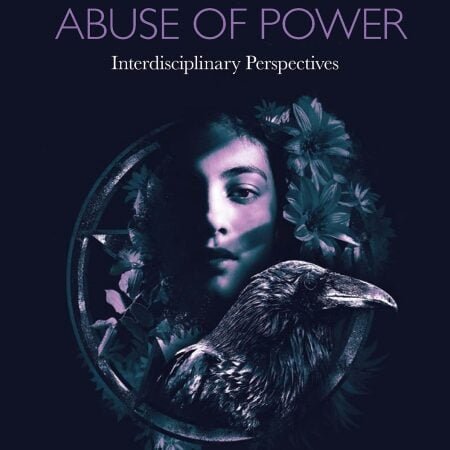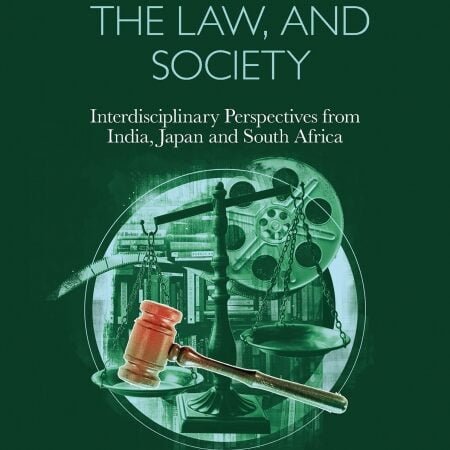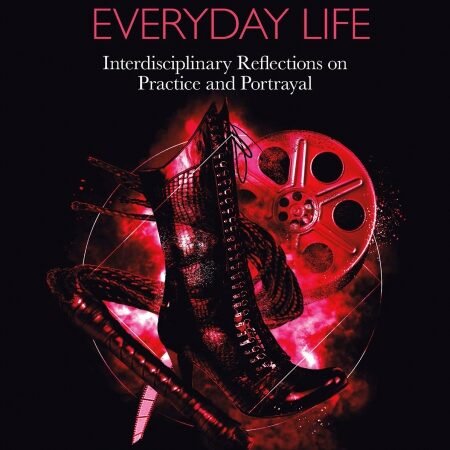Interdisciplinary Essays on Monsters and the Monstrous
£45.00
M. Susanne Schotanus
Progressive Connexions, Netherlands
Progressive Connexions, Netherlands
Format: Hardback
ISBN: 9781801170284
Published: 20 Oct 2022
Publisher: Emerald Publishing Limited
Dimensions: 268 pages – 152 x 229 x 16.45mm
Series: Emerald Interdisciplinary Connexions
ISBN: 9781801170284
Published: 20 Oct 2022
Publisher: Emerald Publishing Limited
Dimensions: 268 pages – 152 x 229 x 16.45mm
Series: Emerald Interdisciplinary Connexions
Categories Emerald series, Evil, Upcoming publications
Tags Chloë Isabel Olivo, Ciudad Juàrez, Dragula, Elena Apostolaki, femicide, Francesca Lopez, freedom, gendered monsters, Gerard Gibson, Guillermo del Toro, killer, Lovecraft, Lovecraft Country, malign, Megan Johnson, Melissa Blackie, monsters, monstrosity, monstrous, Motherhood, Mothers, Mutant, Queerness, Russ Martin, Susanne Schotanus, terror, Uncanny, Woodrow Hood, X-Men
1 in stock
Description of the book
Monsters show us our deepest fears and anxieties, our discomfort with difference, and our simultaneous repulsion with and fascination for the other. Understanding that the concept of the monster can be a political tool used to dehumanize opponents and a psychological tool that can help us reconsider our beliefs, Interdisciplinary Essays on Monsters and the Monstrous analyses and explores the enduring influence and imagery of monsters and the monstrous on human societies.
Introducing the innovative practice of “imagining monsters” as a way to rethink the key organizing principles in our society that we have traditionally taken for granted, the authors explore not only what monsters are but, most importantly, what monsters reveal about us. This cutting-edge collection of chapters challenges us to contradict worldviews, such as the binary of gender, that have organized our thinking for millennia. Showcasing discussions loaded with ontological, ideological, socio-political, and aesthetic implications, the monstrous is rendered uncannily familiar as our own public and domestic socio-political and psycho-emotional realities are subjected to scrutiny.
Launching a critical question: when faced with an existential threat, what can we do? The authors show us how the study of monsters and monstrosity is perfectly positioned to answer. Tackling this question from a unique interdisciplinary scope, the research presented in the chapters are interesting reading for a variety of researchers interested in monsters and the monstrous from across sub-disciplines.
The collection showcases new and original interdisciplinary case studies written by authors from several different countries across Australia, France, The Netherlands, Poland and the UK. Taking an international, interdisciplinary and inclusive approach, this carefully curated collection elaborates embodied encounters with death through music across a variety of praxes and disciplines such as death & grief, queer studies, disability, philosophy, and more. Providing a mix of personal perspectives and insights on the impact of music and death alongside more conventional academic studies, the chapters reveal how music and human nature are intimately, and bodily, entwined.
Framed by opening and closing chapters written by the team of three editors, this core text in the field provides a unique overview of the implications and ramifications of the embodiment of death through music and the musicalisation of death through the body, and signposts possibilities for further research.
Introducing the innovative practice of “imagining monsters” as a way to rethink the key organizing principles in our society that we have traditionally taken for granted, the authors explore not only what monsters are but, most importantly, what monsters reveal about us. This cutting-edge collection of chapters challenges us to contradict worldviews, such as the binary of gender, that have organized our thinking for millennia. Showcasing discussions loaded with ontological, ideological, socio-political, and aesthetic implications, the monstrous is rendered uncannily familiar as our own public and domestic socio-political and psycho-emotional realities are subjected to scrutiny.
Launching a critical question: when faced with an existential threat, what can we do? The authors show us how the study of monsters and monstrosity is perfectly positioned to answer. Tackling this question from a unique interdisciplinary scope, the research presented in the chapters are interesting reading for a variety of researchers interested in monsters and the monstrous from across sub-disciplines.
The collection showcases new and original interdisciplinary case studies written by authors from several different countries across Australia, France, The Netherlands, Poland and the UK. Taking an international, interdisciplinary and inclusive approach, this carefully curated collection elaborates embodied encounters with death through music across a variety of praxes and disciplines such as death & grief, queer studies, disability, philosophy, and more. Providing a mix of personal perspectives and insights on the impact of music and death alongside more conventional academic studies, the chapters reveal how music and human nature are intimately, and bodily, entwined.
Framed by opening and closing chapters written by the team of three editors, this core text in the field provides a unique overview of the implications and ramifications of the embodiment of death through music and the musicalisation of death through the body, and signposts possibilities for further research.
Introduction: Monsters and the Monstrous; M. Susanne Schotanus
Imagining Monsters
Chapter 1. Malign by Design: Imaginatively Visualising Lovecraft and the Aesthetic of Monstrosity; Gerard Gibson
Chapter 2. Racial Terror and the Struggle for Freedom in the HBO series Lovecraft Country; Elena Apostolaki
Chapter 3. Media Makes the Monster: Battered and Abused to Monstrous Killer; Melissa Blackie
Chapter 4. Talking Monsters; Gerard Gibson, Elena Apostolaki, and Melissa Blackie
Gendered Monsters
Chapter 5. Femicide on the Frontier: Analysing Motives behind the Femicide Crisis in Ciudad Juàrez; Chloë Isabel Olivo
Chapter 6. Dragula and the Expansive Queerness of the Drag Supermonster; Russ Martin
Chapter 7. X-Men: The Normative System Disguised as Mutant; Francesca Lopez
Chapter 8. The Making of Monstrosity: Exploring the Monster Figure Through the Lens of Gender; Chloë Isabel Olivo, Russ Martin, and Francesca Lopez
Domestic Monsters
Chapter 9. Mothers, Monsters, & Media: Examining the Parallel Between Motherhood and the Monster; Megan Johnson
Chapter 10. Extra-diegesis, Domesticity, and the Uncanny in the Transnational Films of Guillermo del Toro; Woodrow Hood
Concluding Thoughts on Monsters and the Monstrous; Woodrow Hood and M. Susanne Schotanus
Imagining Monsters
Chapter 1. Malign by Design: Imaginatively Visualising Lovecraft and the Aesthetic of Monstrosity; Gerard Gibson
Chapter 2. Racial Terror and the Struggle for Freedom in the HBO series Lovecraft Country; Elena Apostolaki
Chapter 3. Media Makes the Monster: Battered and Abused to Monstrous Killer; Melissa Blackie
Chapter 4. Talking Monsters; Gerard Gibson, Elena Apostolaki, and Melissa Blackie
Gendered Monsters
Chapter 5. Femicide on the Frontier: Analysing Motives behind the Femicide Crisis in Ciudad Juàrez; Chloë Isabel Olivo
Chapter 6. Dragula and the Expansive Queerness of the Drag Supermonster; Russ Martin
Chapter 7. X-Men: The Normative System Disguised as Mutant; Francesca Lopez
Chapter 8. The Making of Monstrosity: Exploring the Monster Figure Through the Lens of Gender; Chloë Isabel Olivo, Russ Martin, and Francesca Lopez
Domestic Monsters
Chapter 9. Mothers, Monsters, & Media: Examining the Parallel Between Motherhood and the Monster; Megan Johnson
Chapter 10. Extra-diegesis, Domesticity, and the Uncanny in the Transnational Films of Guillermo del Toro; Woodrow Hood
Concluding Thoughts on Monsters and the Monstrous; Woodrow Hood and M. Susanne Schotanus
M. Susanne Schotanus was the Director of Publications for Progressive Connexions and series editor of the Emerald Interdisciplinary Connexions series. Schotanus’ work is marked by a passion for interdisciplinarity and knowledge production, especially on topics that have traditionally been considered taboo.







